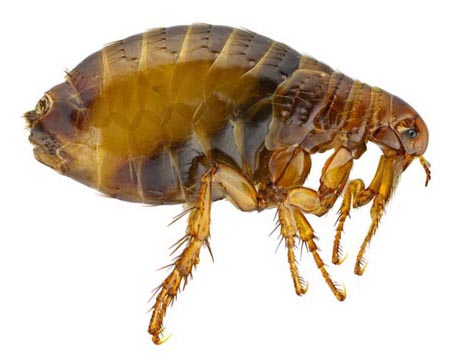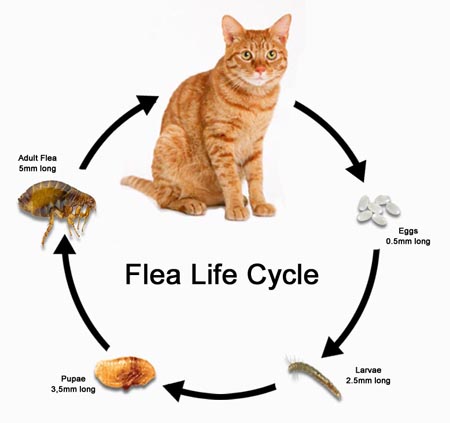
Fleas
Flea control is very important as heavy flea infestation can be very detrimental to the health of the animal, and in extreme cases can cause anaemia, which in young/old or debilitated animals can be fatal. It is important to use flea and worm preparations obtainable from your Vet, they are more effective than those bought over the counter.
Fleas can be a problem even in the best-kept homes and on the cleanest pets. But you can control them as long as you treat both your pet and your home. Fleas live and feed on pets. After feeding on your pet’s blood the female flea lays eggs which drop into the animal’s bedding or favourite resting place. The highest concentration of eggs, larvae, and pupae are likely to be in these areas rather than on the animal itself.
Symptoms
Is your cat scratching? Can you see tiny brown specks in its fur? Do you have some unaccounted for insect bites yourself? If you’ve answered yes, it could mean unwelcome visitors.
And it’s not just the flea bites that can make your pet scratch – they can also be allergic to flea saliva. This is called flea-bite hypersensitivity. Cats are particularly susceptible and can develop itchy crusty spots throughout their coats. This is one cause of a condition called ‘Miliary Dermatitis’ and can be initiated by just one flea.
Treatment
The best way to stop fleas is to seek advice from your vets. They will recommend products suitable to treat your cat and your home. Regular use of flea treatments for the home is essential. Cleaning of bedding combined with a thorough vacuuming of furniture and floors particularly around skirting boards will help to destroy each stage of the flea’s life cycle. You should throw away the bag from your vacuum after each use to prevent any flea eggs and larvae from developing.
Click here for some flea facts

Click here for some Flea Myths
